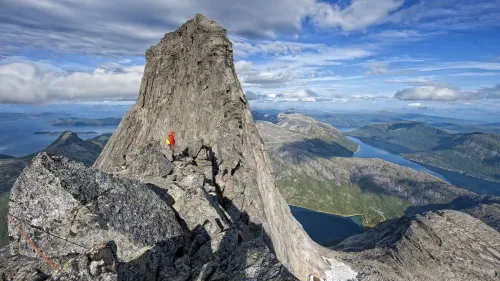My Ascent of Mt. Stetind
Standing on the summit of Stetind, was a moment I will never forget. At 1,391 meters above sea level, the sheer majesty of the view was overwhelming. The fjords glistened below, framed by the distant peaks of the Lofoten Wall and the icy blue glaciers of Narvik. My sister and I held hands, marveling at the surreal beauty around us. It felt like standing on the edge of the world, a place where time seemed to pause. Yet, the journey to this point had been as meaningful as the destination itself: a story of challenge, awe, and inspiration.
The call of the mountain
The idea of climbing Stetind began almost whimsically. My sister and I had heard that this iconic peak, Stetind, could be summited with the help of an experienced guide, even for those with little climbing experience. We couldn’t shake the thought of standing on its summit, looking out over the fjord landscape.
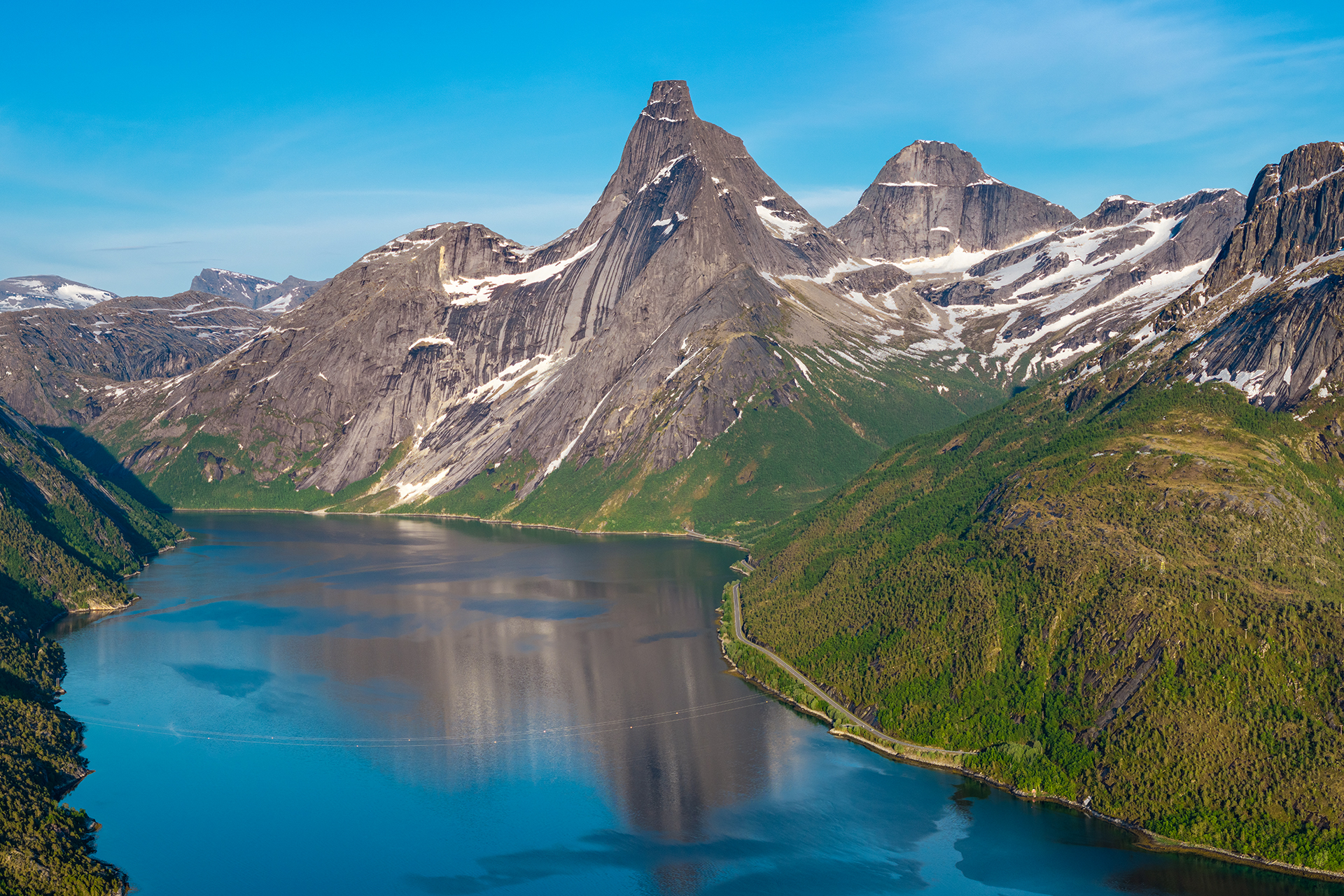
Mt. Stetind stands proudly over Stefjorden, embodying the wild and breathtaking beauty of the country.
Joakim Jaksland
We reached out to Magnus Strand of Narvikguides, an internationally certified IFMGA mountain guide who leads weekly expeditions to Stetind during the climbing season. His calm and reassuring demeanor immediately put us at ease. Magnus explained the route, known as the Southeast Ridge or "Normalveien," and emphasized that the climb, while challenging, was achievable with the right mindset and preparation. Inspired, we booked our trip, packed our gear, and flew north to Evenes/Narvik, eager to embark on this adventure.
The approach
The journey to the mountain began with a scenic hour-long drive from Narvik through a landscape of dramatic fjords and rugged peaks. Arriving at the base of Stetind, we were struck by its imposing presence. The mountain’s smooth granite walls seemed to rise vertically from the fjord, and its distinct peak, often described as an "anvil," was both awe-inspiring and intimidating. After meeting Magnus in the parking area, we conducted a quick gear check and received a briefing on the day ahead. Magnus’s calm confidence and extensive experience, having summited Stetind over 180 times, gave us the reassurance we needed to begin the trek.
The trail started gently, winding through a peaceful birch forest. The sounds of nature surrounded us: the rustling of leaves, the chirping of birds, and the distant rush of water. As we ascended, the trees began to thin, and the views opened up. Above the treeline, Stetind’s granite walls came into full view, their scale more impressive than we could have imagined.
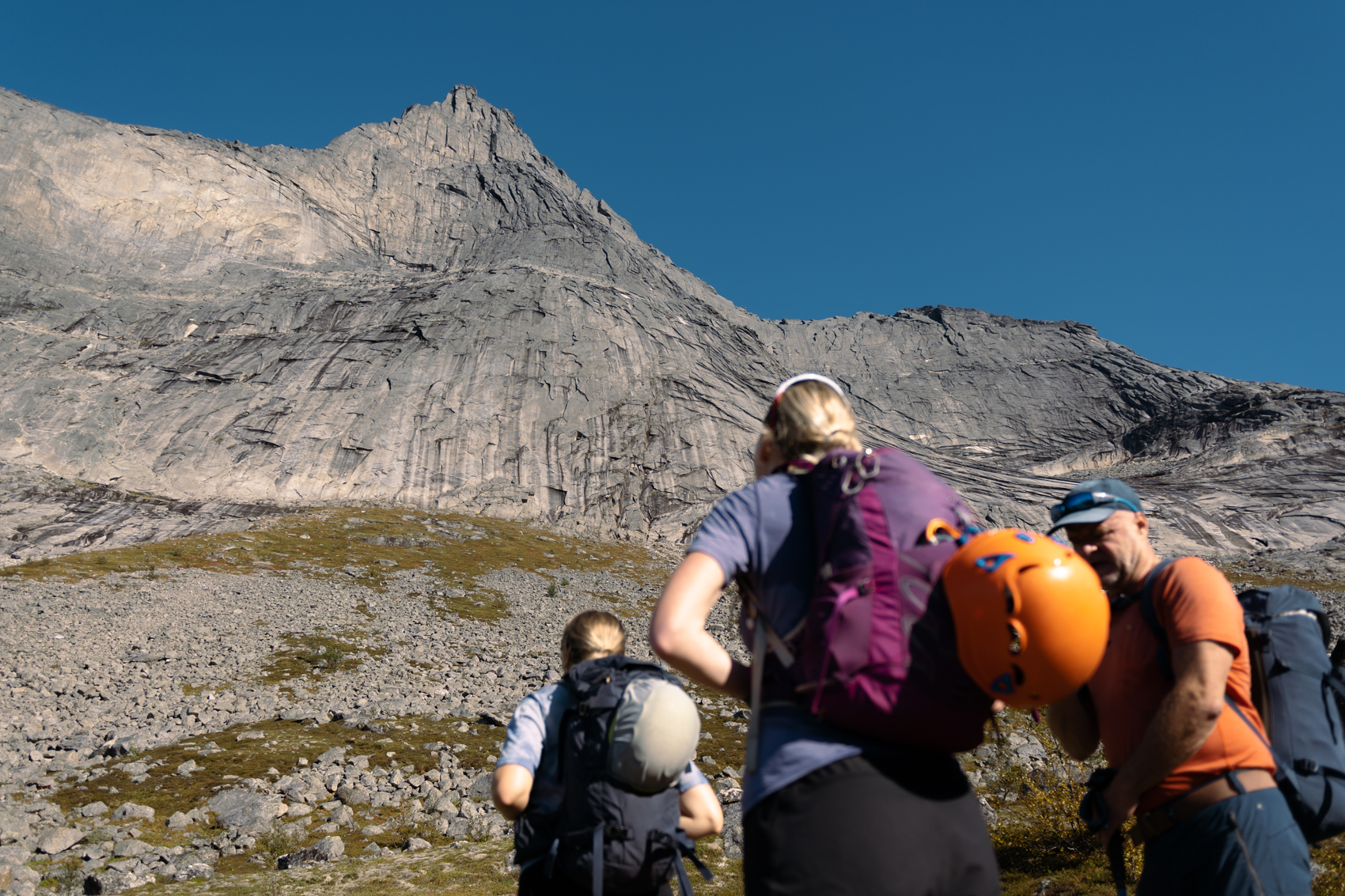
Looks like we're climbing that... whose brilliant idea was this?
Marie Nystad
We stopped for a break at Arnesteinen, a boulder with cultural significance. Magnus shared stories about Stetind’s role in Norwegian eco-philosophy, a movement led by thinkers like Arne Næss, Sigmund Kvaløy Setreng, and Nils Faarlund. Their ideas, encapsulated in the "Stetind Declaration," emphasize the harmony between humans and nature, advocating for sustainable living and a deeper respect for the environment.
We have gradually come to realize:
- That our way of life has fateful consequences for nature and human- kind, and thus for all life on Earth.
- The challenges we face as individuals and as a community are not merely of an economical and technological nature.
- They concern our basic values and our fundamental conception of what it means to be human.
We acknowledge that:
- Nature and humankind constitute a whole and share a common destiny. Nature is the home of culture.
- Life is like a woven fabric of relations. To live is to be dependent.
- The value of nature and human dignity are intrinsically linked. What we do to nature, we do to ourselves.
- All life is vulnerable and therefore under threat.
- Concern for nature implies a concern for greater justice: Our way of life affects in particular the poorest among us, indigenous peoples, and future generations.
We will:
- Work to promote a renewed understanding of the relationship between nature and humankind.
- Strive to base our choices, both as individuals and as a community, on this understanding.
- Discover the joy of living in harmony with nature: There is no path to harmony with nature. Harmony with nature is the path.
- Humankind possesses great capacity both to create and to destroy.
- At this crucial point in time we will take responsibility and commit ourselves to thinking and living in a way that promotes life.
- I/we will work to fulfill the Stetind Declaration.
Listening to Magnus, it became clear that Stetind was more than a mountain to him, it was a symbol of something far greater.
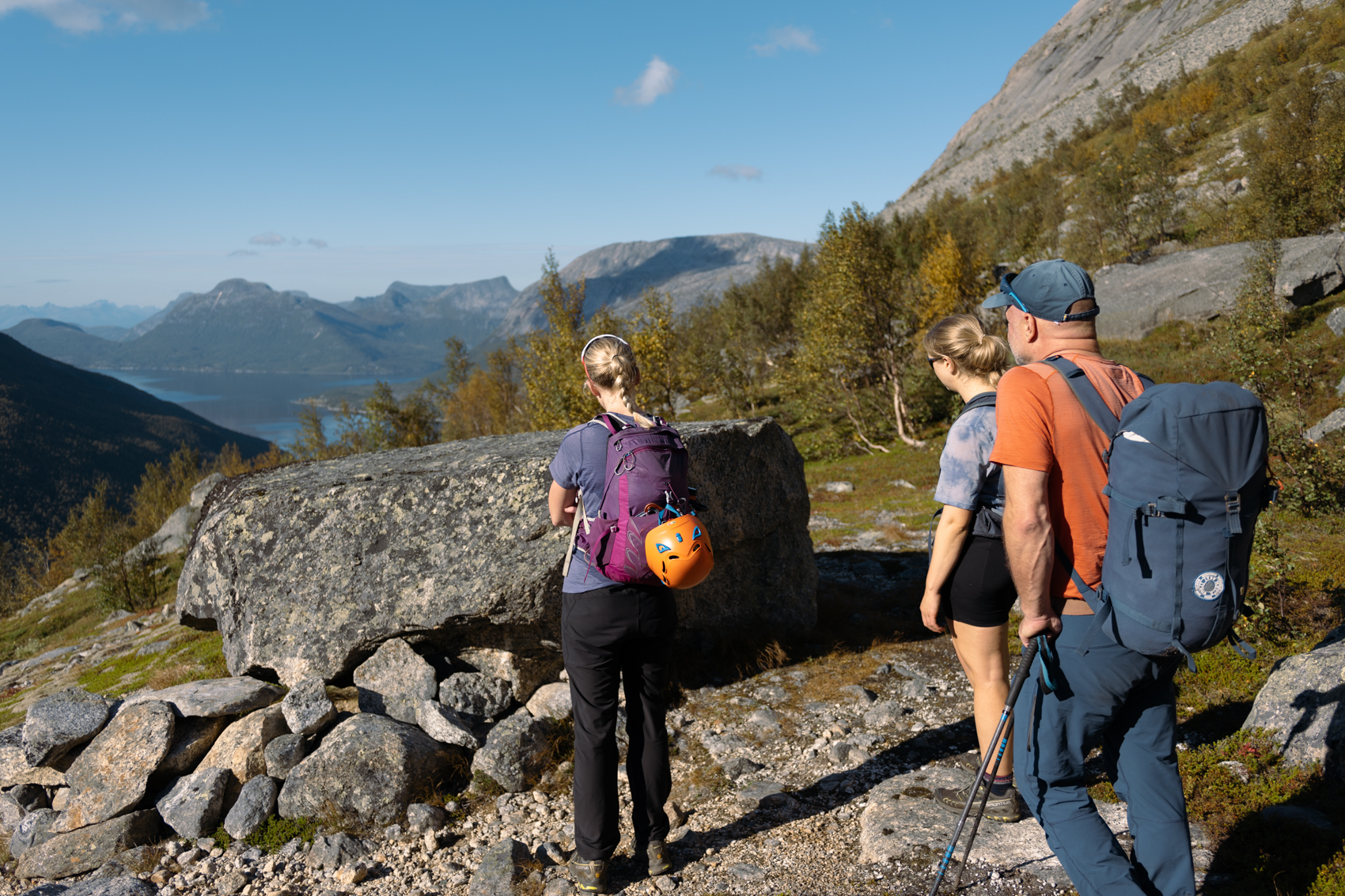
Climbers on their way to Stetind’s summit often pause at Arnesteinen to reflect on the harmony between humans and nature.
Marie Nystad
Our next stop was Svartvannet, a serene alpine lake at 728 meters, where we refilled our water bottles and had a quick snack. Beyond this point, the trail became steeper and more challenging, transitioning from hiking to scrambling. The climb to Halls Fortopp, the sub-peak at 1,315 meters, was physically demanding but deeply rewarding. Each step brought us closer to the summit, and the panoramic views of fjords and mountains provided all the motivation we needed.
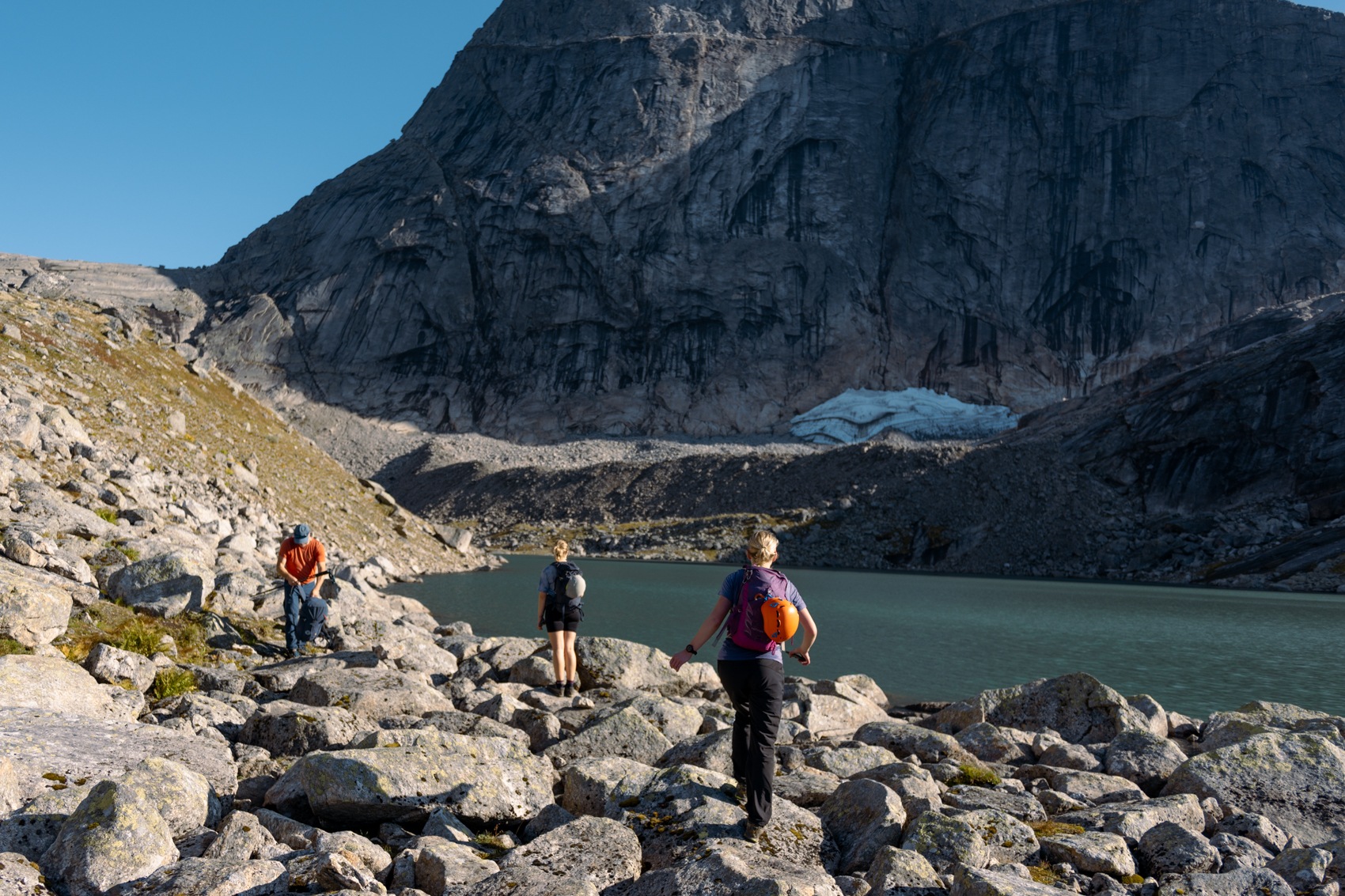
Time to refill our water bottles at Svartvannet.
Marie Nystad
Traversing the ridge
Reaching Halls Fortopp felt like a milestone. Ahead lay the most thrilling part of the climb: the Southeast Ridge. Magnus prepared us with a detailed safety briefing before we donned our harnesses and roped in for the ascent. The ridge was narrow and exposed, with sheer drops on either side. But with Magnus guiding us, we felt secure as we carefully navigated the route.
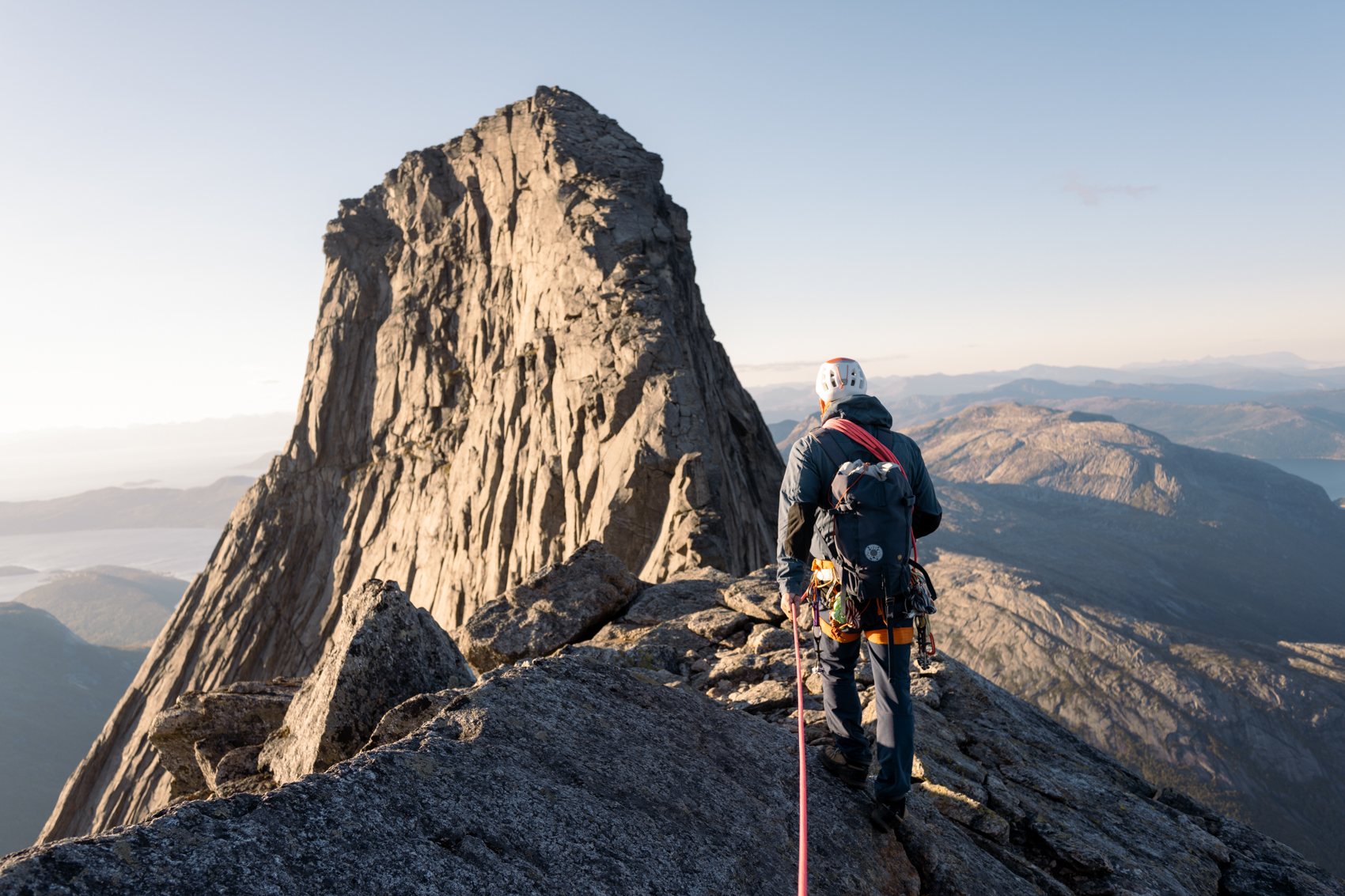
Magnus Strand standing on Halls Fortopp, pointing out the route ahead.
Marie Nystad
The infamous "Fingertip Traverse" was the most daunting section of the climb. A 20-meter traverse along a nearly vertical granite face, it required balancing on narrow footholds while gripping the rock with our fingertips. Magnus provided clear instructions and ensured every move was safe. The moment I completed the traverse, a wave of euphoria washed over me. It was a test of courage and focus, and I felt an immense sense of achievement.
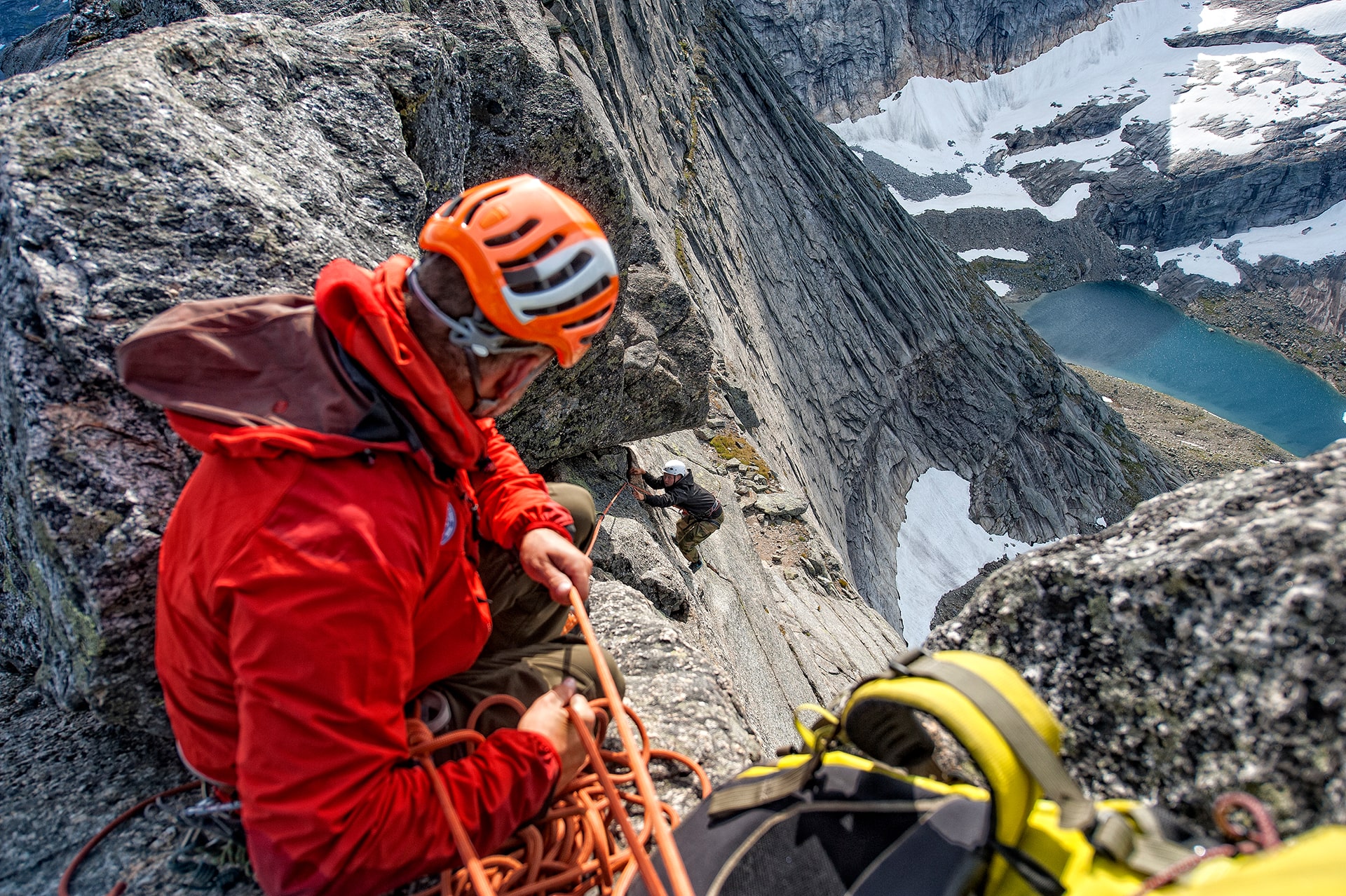
The infamous Fingertip Traverse
Rune Dahl
A view like no other
The final stretch to the summit was less technical but no less exhilarating. As we climbed higher, the views expanded, revealing a breathtaking panorama of Norway’s rugged wilderness. When we finally stepped onto the summit plateau, the experience was surreal.
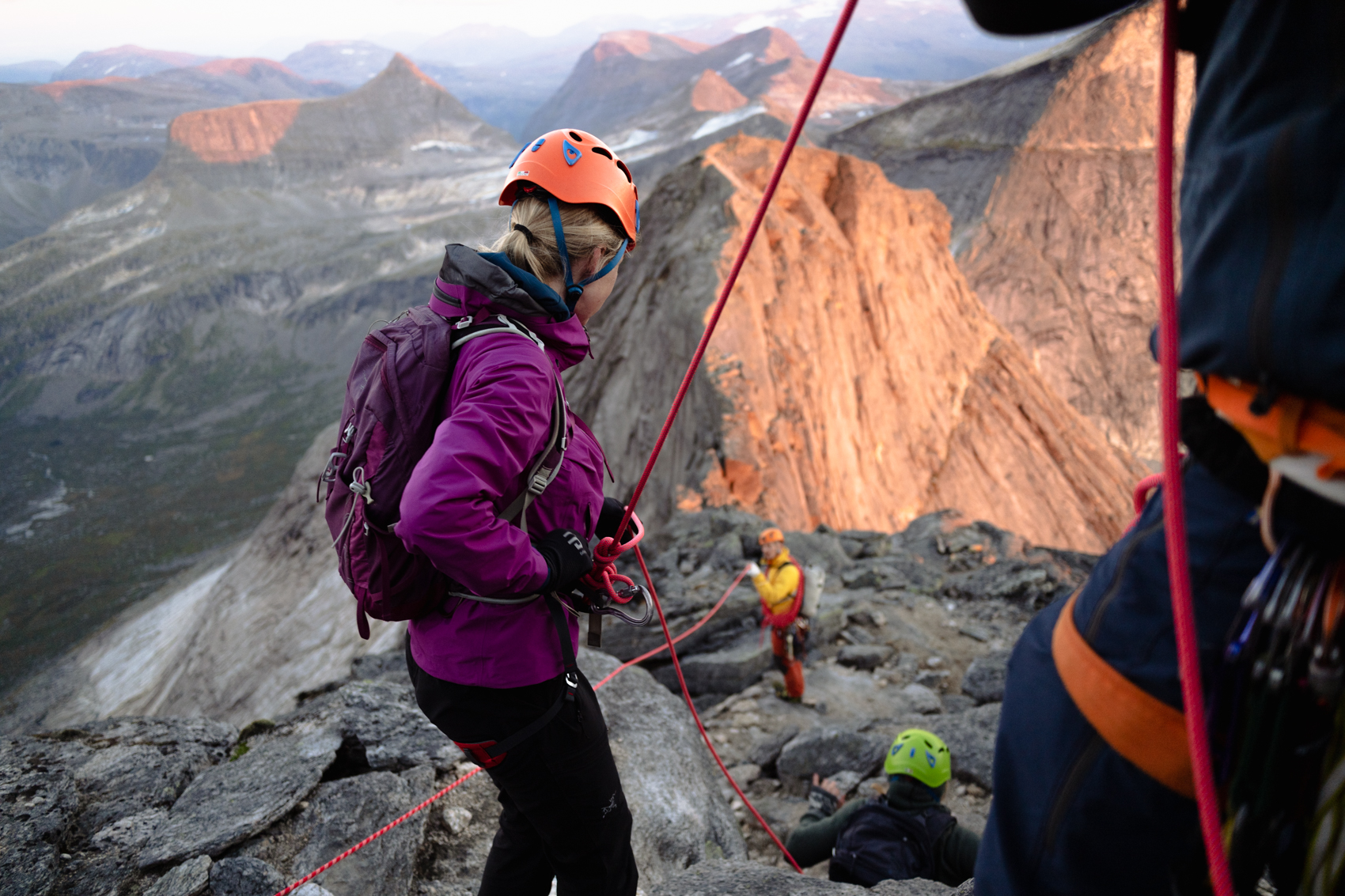
The rest of the ascent felt effortless after the fingertip traverse.
Marie Nystad
Unlike the steep ascent, the summit itself was surprisingly flat, providing a perfect vantage point to take in the scenery. To the west, the jagged peaks of the Lofoten Wall stretched across the horizon. To the east, glaciers sparkled in the sunlight, and the fjords glimmered far below.
As we stood there, soaking in the beauty of the midnight sun, I felt a profound sense of connection; to the mountain, to nature, and to the people who had shared this journey with me. The climb had been physically demanding and mentally challenging, but it was also deeply rewarding.
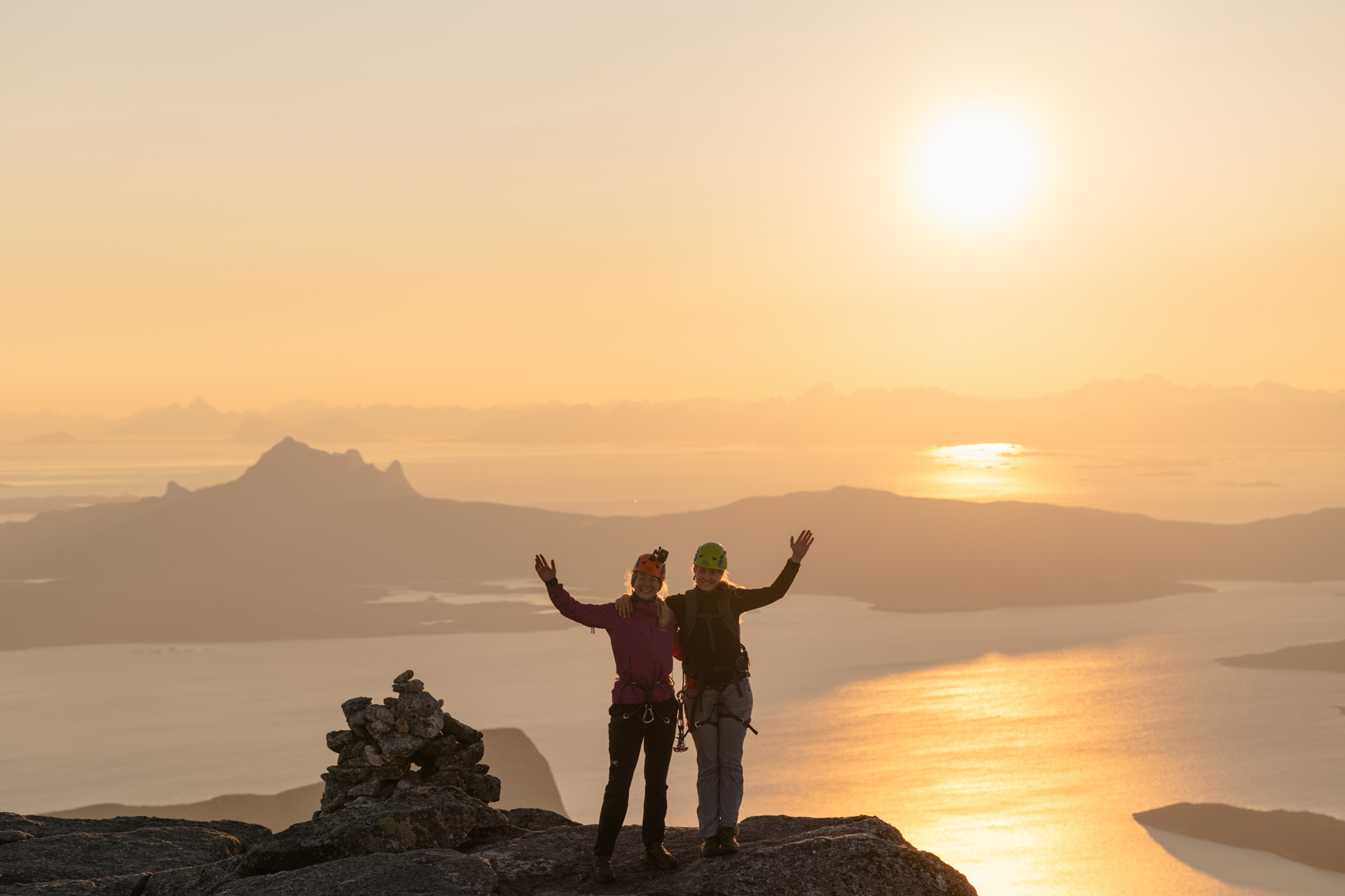
The breathtaking views from the top made it all worth it!
Marie Nystad
A memory to treasure
Descending Stetind, I reflected on the journey. It wasn’t just about reaching the summit; it was about the entire experience; the camaraderie, the stories, the personal triumphs, and the profound respect for the natural world.
Climbing Stetind with a guide had turned what seemed like an impossible dream into a life-changing adventure. For anyone considering the climb, I can only say this: answer the call of the mountain. With the right guide and an open heart, you’ll discover that Stetind is more than just a peak; it’s an unforgettable journey into the heart of Norway's dramatic landscapes.
Take the first step toward your own adventure. Book your journey and experience the magic of Norway’s national mountain.

Ragnhild Harbo
Ascended Mount Stetind on September 2, 2024.
Practical information
Season: Climbing trips to Stetind are conducted from July to September.
Duration: The climb takes 8-12 hours in total. It takes approximately 3 hours to walk from the parking area to Halls fortopp, followed by 2 hours of climbing to the summit. The return trip takes a similar amount of time.
Weather Conditions: The climb is only conducted in good weather with dry conditions. Route: The standard route is excellent for beginners in traditional climbing, featuring a ridge walk and a short, exposed 20-meter climbing section (Grade 4+).
Group Size: Each guide accommodates a maximum of 2 participant
Certified Mountain Guides: We highly recommend to climb the peak with a certified Mountain Guide (IFMGA-UIAGM-IVBV). Every trip into the mountains entails a certain amount of risk. Certified mountain guides are experts in their field and have an in-depth knowledge of the local terrain and are able to guide you safely through it.







